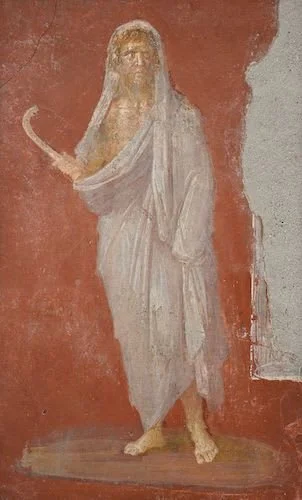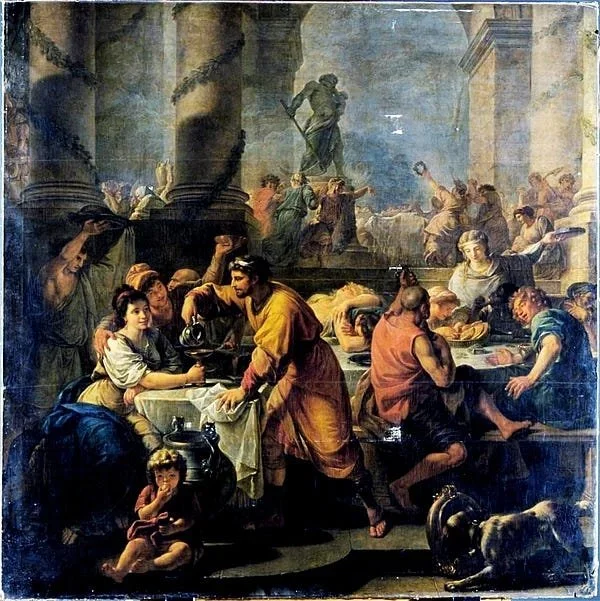Io, Saturnalia
Some of you might have heard of Saturnalia before, maybe on social media. There is, after all, a meme for everything. But most people don’t know all the ins and outs of this Roman festival. Let’s fix that!
Saturnalia, as the name suggests, is a festival dedicated to Saturn, the god of agriculture, time, money/wealth, and liberation. If you are asking yourself, “Why is Saturn the god of time? I thought that was Chronos?,” you aren’t wrong. In Greece, Chronos was the god of time. Over time, distance, and culture, the Romans attributed many of the aspects of Chronos to the god Saturn. It’s thought that a better way of thinking of the “time” aspect would be “seasons.” This makes sense when you think about Saturn also being the god of agriculture. Farming has distinct seasons, and Saturnalia is the celebration of one of these.
Saturnalia was traditionally celebrated on December 17th (though that was shifted from its original date in January, due to Caesar’s changing of the calendar and other adjustments made over the years). Over the years, the festival was extended to last seven days in the late Republic (Cicero and Caesar’s time), was limited by Augustus to three days (he didn’t want the courts closed), and then was extended once more by Caligula, then was abolished, then was restored again but Claudius. People being people, however, once the holiday had extended to a week, they still celebrated it for a week if they were able, despite the wishes of whatever emperor was in power.
Mid-December marked the end of fall planting in Ancient Rome. In order to celebrate this and to have a prosperous harvest in the year ahead, the Romans had a holy festival. There was a sacrifice at the Temple of Saturn, and the woolen fetters on the ivory statue of Saturn within the temple were loosened, representing the liberation of the god. Indeed, liberation was a very large part of this holiday.
To celebrate this aspect of the god Saturn, there was a public banquet that was free for everyone. Enslaved and freed people alike joined patricians and citizens to feast and be merry. Businesses and courts were closed, gambling (usually illegal) was allowed, and dress codes were loosened. According to some accounts, everyone was encouraged to wear freedman’s caps, to represent the spirit of freedom. Many Ancient Roman writers claimed Saturnalia was the best day of the year, a day of riotous feasting and presents, visiting, and drinking.
Because the historical record of slaves is sparse at best and nonexistent in arguably most cases, it’s difficult to say if the writings we do have accurately describe their experience. It’s one thing for the powerful men to talk about how revelrous and riotous the holiday was, and to mention how much freedom the slaves had on that day, but in reality, it is all but certain that not everyone was able to take part. Rich powerful men were (and are) blind to the situations of people they can’t relate to. Romans thought that enslaved people were less than others. Writings from the time are full of talk of the enslaved not comprehending what freedom was, or not being able to handle the burden of liberty, and so on. If patricians believed these things, it’s perfectly plausible that there was not as much freedom on this holiday as is described. After all, who cooked the food for the feast? Who served it? Who dressed the patricians in their casual clothes? There are tales of patricians serving enslaved, but we don’t see a convincing amount of evidence in the writings from the time. Spirit and practice can be very different things.
So, how about you? Will you be letting your hair down and feasting today?
"Who can sing of the spectacle, the unrestrained mirth, the banqueting, the unbought feast, the lavish streams of wine? Ah! now I faint, and drunken with my liquor drag myself at last to sleep.”
—Satius, 1st century CE, after attending Emperor Domitian’s Saturnalia feast

